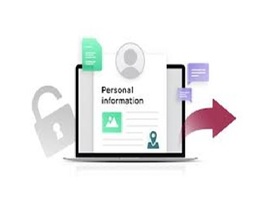No.14467
File: 1726794562364.jpg (16.15 KB, 404x323, 404:323, Freedom-of-Speech-Versus-D….jpg) ImgOps Exif Google

Let's suppose that you live in a nation with a legal system like the U.S. with freedom of speech beyond what currently exists as a logical extreme, with no restrictions of any sort being set up at all in this new place.
For example, all websites would legally be able to advertise videos of real child abuse of sale, to post public plans of assassination, to share theories of how to use victim's stolen bank records, and all that.
Does there reach a clear-cut point in which too much freedom of speech damages other basic civic rights?
Suppose I, a hypothetical businessman named Bob Smith, get mad that my bank account data has been stolen and shared online. And I decide to fight for a "Government Censorship Act" that would legally prohibit the doxxing of people's sensitive information online, particularly by posting here-and-there credit card numbers. I proclaim "Americans should have less liberties and freedoms" because their speech has destroyed my "private property rights" in my activism.
Am I "evil"? Am I "bad"? Am I "wrong"? Am I "social-justice-warrior"? Am I "woke"? Am I "far left"? How far from the logical extreme is acceptable to go before people like me would become damned?
No.14468
The short answer is no.
The long answer: Basic civil rights have to be defined, and any freedom of communication would have to be compared to civil rights as defined by its own system and therefore could absolutely not infringe upon them.
Now, how do we define civil rights, and how should we define civil rights? That question is always up in the air. Like surely we agree that you shouldn't be able to murder someone, but like you mentioned, does that mean you shouldn't be able to talk about murdering someone? Is it your right to not be murdered? And if so, is the state required to stop murder in every way possible, including arrest people who merely mention murder? It's a tough question, because every step of freedom given up is a loss, and that isn't worth it until you witness enough murders to change your mind.
In more realistic and less theoretical terms, freedom of speech seems like it was originally intended to mean "the government we're forming won't imprison or assassinate you because you tell people you don't like us", which was and in some places still is a common problem. That people have taken it to mean "I can literally say whatever I want and no one can do anything about it" leads to really weird situations, not the least of which is people going to websites that are technically private, pissing everyone off, and then saying they can't be removed because it violates their freedom of speech.
